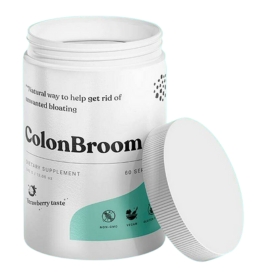
Ever get that fluttery feeling in your stomach when you’re anxious? It turns out that your gut and brain have a tighter bond than you might think linking gut health and anxiety. Beyond those nervous butterflies, your gut, home to countless microbes, plays a sneaky role in your mental health. This link, often called the gut-brain axis, suggests that taking care of our gut could be a key to easing anxiety. Especially for those dealing with IBS, recognizing and nurturing this connection can be a real eye-opener.
Do Anxiety And Gut Health Share A Connection?
Yes, anxiety and gut health share a profound connection. The gut-brain axis highlights how our gut microbiome can influence our mood and mental well-being. Imbalances in gut bacteria can send signals to the brain, potentially affecting neurotransmitters and triggering mood changes, including anxiety. Conversely, mental stress can impact our gut health. Prioritizing both mental and gut health leads to harmonious well-being.
Do Gut Health And Anxiety Influence Each Other?

Indeed, gut health and anxiety are deeply intertwined. Think of your gut as a bustling city with trillions of bacteria as its citizens. This diverse community, known as the gut microbiome, influences far more than just digestion. One surprising area they impact? Your mood and mental well-being.[1] Studies have shown a strong correlation[2] between anxiety and gut health. Changes in your gut bacteria can send signals to your brain, affecting neurotransmitters[3] and potentially triggering mood changes and conditions like social anxiety disorder.
So, why does this matter to you? Consider the many times you’ve felt emotional distress alongside stomach discomfort. That ‘gut-wrenching’ feeling during moments of stress isn’t just a saying—it’s your brain and gut communicating. When your gut bacteria is out of balance, it could make you more susceptible to anxiety.[4] Recognizing the profound brain-gut connection can be your first step in addressing both physical and emotional discomfort. It’s fascinating how closely our gut health ties into our emotions, isn’t it?
FEATURED PARTNER OFFER

Colon Broom
- Reduces bloating and relieves constipation
- Improves general gut health
- Increases fiber intake
- Supports healthy cholesterol levels
- Promotes healthy circulation
Symptoms Of Anxiety
Anxiety isn’t just an abstract feeling; it manifests in tangible, sometimes distressing, ways. It’s like an unwanted guest that shows up without notice, and its presence is felt through a series of tell-tale signs. Recognizing these symptoms[5] can be the first step in understanding and managing your emotional landscape.
Restlessness
A common symptom among those with anxiety disorders, restlessness often feels like an uncontrollable urge to move or an unsettling sensation that keeps you on edge. This feeling can be exacerbated by persistent thoughts, making it hard to relax or sit still.
Rapid Heartbeat
Anxiety can set your heart racing, almost as if you’ve just finished a sprint. The connection between anxiety and gut health can play a role here in terms of a healthy microbiome. An imbalanced gut might intensify these heart palpitations, emphasizing the importance of a balanced gut and microbiome.[6]
Trouble Concentrating
Ever felt a mental fog when anxious? It’s not uncommon. Anxiety can scatter your thoughts, making the ability to focus a challenge. Tasks that once seemed routine can become daunting when your brain is preoccupied[7] with worry.
Sleep Disturbances
From trouble falling asleep to frequent waking or even nightmares, anxiety disrupts our rest. Interestingly, the brain-gut connection comes into play here, too. An imbalanced gut might influence your sleep patterns,[8] further underlining the intricate dance between gut health and anxiety.
Gastrointestinal Issues
Remember the gut-brain connection we’ve been emphasizing? This is where it becomes glaringly evident. Anxiety can lead to stomach upset, bloating, or even IBS-like symptoms.[9] Paying attention to both your mental well-being and gut health becomes essential.
In essence, anxiety isn’t just a mental challenge. It has physical repercussions. But understanding its symptoms, especially in relation to the gut, can pave the way for effective interventions. As you navigate the complexities of anxiety, remember to give equal attention to both your mind and body.
How Does Gut Health Affect Mental Health?
Ever considered that the foods you eat might be playing with your mood? It’s not just a hunch. Dive a little deeper, and you’ll discover a compelling link between your gut and your emotions. It’s like they’re in a conversation, and sometimes, it’s more profound than you might think. The intricate ecosystem within your gut, teeming with trillions of microorganisms like gut microbiota, doesn’t just aid in digestion. It is also deeply intertwined with your brain through a unique connection.[10]
The stomach is often called your second brain. Deep within, your gut houses a complex network, almost like a brain of its own, buzzing with activity. Thanks to the vagus nerve and central nervous system, the body’s superhighway, your tummy and head are in constant chatter.[11] So, when things go awry in the gut, it might churn out chemicals, making us feel anxious or down. This change in brain function creates a connection between gut bacteria and depression. It’s like a two-way street where a troubled gut sends SOS messages to the brain, and vice versa.
Another interesting perspective is the role of inflammation. A troubled gut can kickstart inflammation,[12] which might not only disrupt our digestive rhythm but also sway our emotional balance. Some foods that assist with bloating and digestion also have the potential to cool down this inflammation, creating a ripple effect of positivity in our mood. So, when we prioritize our gut’s well-being, we’re doing more than just aiding digestion. We’re creating a bridge between a hearty meal and a happy mind and reducing the chances of anxiety and depression. Embracing this intricate dance between anxiety and gut health reminds us that intertwined bodies and minds always thrive best in unity.
Ways To Improve Gut Health

Improving gut health is not just about diet but also about lifestyle. Here are some things to add to your daily routine to boost your gut health.
Embracing Probiotics And Prebiotics: Building A Bacterial Haven
The gut houses trillions of bacteria, and maintaining a balance between the good and the not-so-good is essential for optimal gut health.[13] Probiotics are live beneficial bacteria found in fermented foods like yogurt and kimchi. Prebiotics, on the other hand, are dietary fibers that serve as food for these friendly bacteria. Consuming a mix of both and taking probiotic supplements ensures a vibrant, healthy bacterial environment in the gut.
Choosing Foods That Alleviate Bloating: Digestive Comfort At Its Best
Bloating can be a pesky side effect of a troubled digestive system. To ease such discomfort, incorporate foods that help with bloating into your diet or take debloating pills. Foods like ginger, fennel seeds, and peppermint[14] have properties that can soothe upset stomachs and support smoother digestion.
Prioritizing Vitamins: The Building Blocks For Gut Health
Vitamins play a pivotal role in ensuring our gut functions effectively. Certain vitamins for gut health not only promote better digestion[15] but also facilitate nutrient absorption. A balanced intake of vitamins from sources like leafy greens, fish, and whole grains helps fortify the gut against potential disturbances.
Hydration And Movement: The Dynamic Duo
Never underestimate the power of water and physical activity. Keeping yourself hydrated[16] ensures the smooth movement of food through the digestive tract. Moreover, engaging in regular physical activity can enhance gut motility and reduce the chances of constipation. Think of it as a dance: As you move, so does your digestive system, in perfect rhythm.
Remember, nurturing your gut is a continuous journey. It’s about making choices that bolster health while also fitting comfortably within your lifestyle. The rewards, from better digestion to improved mental well-being, are well worth the effort.
Tips To Manage Anxiety
Anxiety and depression can often feel like an unwelcome visitor, appearing at the least opportune moments and casting a shadow over daily activities. Incorporating simple, everyday habits and being mindful of certain lifestyle choices can go a long way in alleviating anxious feelings and fostering a sense of calm.
Nourishing Meals For A Calm Mind And Healthy Gut
Prioritizing a wholesome and nutritious diet is a pivotal strategy in anxiety management. Consuming a diverse mix of whole foods, lean proteins, and a rainbow of fruits and vegetables equips our body and brain with the vital nourishment they crave. By giving our bodies the right fuel, we empower ourselves to tackle daily challenges with resilience.
Moreover, selecting foods known to counteract bloating not only soothe the gut but might also create an atmosphere less conducive to anxiety.[17] It’s essential to recognize the symbiotic relationship between what we eat and how we feel and make informed choices that enhance our overall wellness.
Mindfulness: A Path To Inner Calm
Embracing mindfulness and meditation offers an avenue to center yourself, providing an oasis of calm in a turbulent world. Regularly taking moments to be present can drastically reduce the intensity of anxiety[18] and its symptoms.
When we anchor ourselves in the present, we detach from past regrets and future worries, creating a sanctuary of peace within. Additionally, these practices strengthen our ability to react with calmness to external pressures, ensuring that we maintain a balanced internal environment despite external chaos.
Stay Active, Stay Grounded
Consistent physical activity is not just beneficial for the body but also acts as a salve for the mind. Exercise releases endorphins, natural mood lifters that can counteract feelings of depression and anxiety and treat anxiety.
Additionally, physical activity acts as a potent distraction, allowing us to break the cycle of anxious thoughts. Regular movement, whether it’s a brisk walk or an intense gym session, fosters a sense of accomplishment and boosts our overall mood, pushing anxiety to the backdrop.
Beware Of Stimulants: Choose Wisely
While a morning cup of coffee might seem indispensable, it’s crucial to monitor the intake of stimulants like caffeine, which can aggravate gas and intensify stress. Overconsumption can lead to increased heart rate and restlessness, further fueling anxiety’s fire. Making informed choices, like opting for herbal teas or reducing caffeine intake,[19] can significantly impact our mental equilibrium. It’s all about understanding the fine balance and ensuring that our choices support our mental well-being and do not inadvertently exacerbate our symptoms.
Seeking Support: The Strength In Vulnerability
It’s essential to recognize when professional guidance is needed. While self-help strategies can be effective, there are times when the expertise of a trained counselor or therapist is invaluable.
Engaging in therapy can provide personalized strategies to navigate the complex maze of anxiety, ensuring we’re not alone in our journey. Remember, seeking help is not a sign of weakness. It’s a testament to one’s commitment to personal growth and well-being.
Conclusion
The brain-gut connection underscores the importance of holistic health approaches. By focusing on both mental and gut health, one can pave the way for overall well-being. This symbiotic relationship highlights that our dietary choices can significantly impact our mental state, just as our mindset can influence our digestive health. Embracing strategies that nurture both the mind and the gut ensures a balanced, harmonious life journey.
Frequently Asked Questions
Yes, imbalances in gut bacteria can play a significant role in the manifestation of anxiety symptoms. The gut-brain connection shows that our digestive health often mirrors our mental well-being.
Absolutely. Ensuring a healthier gut through diet and lifestyle choices can often lead to improved mental health, providing a potential strategy for managing anxiety.
Certain gut bacteria produce neuroactive compounds that can affect the brain and potentially induce anxiety.
Bloating, gas/farts, diarrhea, constipation, heartburn, food intolerances, bad breath, sleep disturbances, skin problems, and autoimmune conditions.
Inflammation in the gut can influence neurotransmitter production, which may lead to anxiety.

